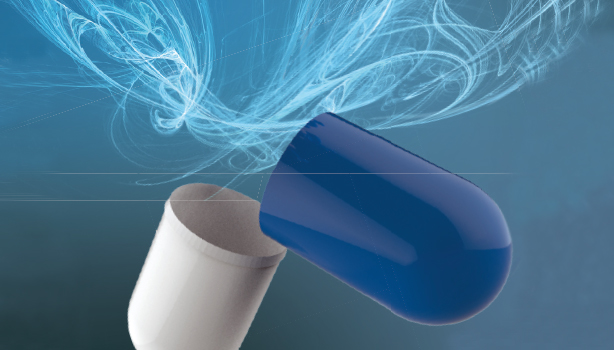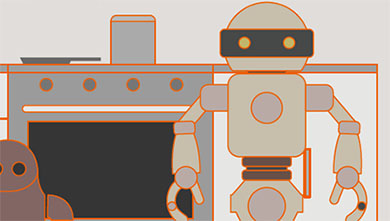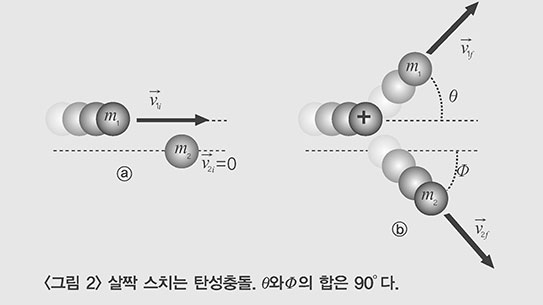최근 뇌과학이 큰 인기를 끌면서 국내에서도 뇌과학을 통한 우울증 연구가 활발히 이뤄지고 있다. 지난 10월에 발표된 자기혐오와 우울증에 대한 연구는 언론과 과학계의 관심을 끌었다. 이번 호에서는 뇌과학과 우울증에 관해 알아보자.
They say there’s a fine line between love and hate, as evidenced by the fact that the same brain circuitry processes both intense love and severe hatred. Now a new study finds that the key wiring that connects brain regions in this circuit is weakened in people suffering from depression. At first glance, weakening the brain connections necessary to feel hate might seem like a recipe for calmer and more peaceful feelings, but the researchers think the decoupling may actually contribute to feelings of self-loathing, which is clearly associated with depression.
Meanwhile, because the same brain-circuitry problems interfere with the ability to feel love, it may further cause feelings of self-hatred in people with depression, who commonly say they feel unloved and unlovable, even when there is affectionate evidence to the contrary.
Using magnetic resonance imaging, researchers performed brain scans on 15 people with untreated depression, 24 people whose depression had not responded to multiple antidepressants and 37 healthy controls, who were matched by age, gender and education to the depressed people. The researchers found that compared to the control group, depressed people showed weakened connections between the superior and inferior orbitofrontal cortex (OFC) on the left side of the brain, but stronger connections on the right side of the brain. Previous research suggests that the right OFC responds more to punishment, while the left is more responsive to reward.
But why does such brain circuitry increase depressed people’s self-hate more than their hatred for others? The scientists’ answer: The uncoupling of this hate circuit could be associated with impaired ability to control and learn from social or other situations, which provoke feelings of hate towards self or others. This in turn could lead to an inability to deal appropriately with feelings of hate and an increased likelihood of both uncontrolled self-loathing and withdrawal from social interactions.
Alternatively, the new research could support the Freudian notion that at least some part of depression may be due to ‘anger turned inward.’ Whether the dysfunctions in these regions involve reduced ability to feel love or increased feelings of self-hate, or both, understanding the circuitry may potentially help researchers develop more effective treatments. The research was published in Molecular Psychiatry and led by Dr. Feng of the University of Warwick in England.

해석 우울증에 의한 자기혐오 증가
사람들은 흔히 사랑과 증오 사이에 매우 얇은 경계만이 존재한다고 말하는데, 이는 극한의 사랑과 강렬한 증오가 모두 동일한 뇌회로를 사용한다는 것으로 증명됐다. 최근 발표된 새로운 연구결과에 의하면 우울증을 앓는 사람은 이 회로가 매우 약해져 있다고 한다. 얼핏 보면 증오를 느끼는 뇌회로가 약해지면 더 조용하고 평화로운 감정을 느낄 것 같다. 그러나 과학자들은 타인에 대한 증오회로가 약해지면 오히려 자기혐오가 강해지는 결과를 낳는 것을 밝혀냈다. 이것은 우울증과 관련있다.
한편 동일한 뇌회로가 사랑을 느끼는 쪽에도 활용되기 때문에 우울증을 앓는 사람들은 더 심각한 자기혐오를 느낄 수 있다. 이들은 보통 자신이 사랑받지 못하고 사랑받을 가치가 없다고 말하는데, 현실이 이와 정반대일 경우에도 본인은 그렇게 느낀다.
MRI를 사용해 과학자들은 치료받지 않은 우울증 환자 15명과 치료약에 반응을 보이지 않은 환자 24명, 그리고 37명의 건강한 사람들(이들의 연령, 성별, 교육수준은 우울증 환자들과 동일하게 선택함)의 뇌영상을 촬영했다. 과학자들은 우울증을 앓는 사람 좌뇌의 안와전두엽피질(OFC) 상층부와 내부가 보통사람보다 덜 활성화됐으며 우뇌의 안와전두엽피질은 일반인보다 훨씬 강하게 활성화된 것을 발견했다.
선행연구에 의하면 우측 안와전두엽피질이 ‘처벌’에 더 강하게 반응을 보이는 반면, 좌측 안와전두엽피질은 ‘보상’에 강한 반응을 보인다는 것이 알려져 있었다.
그렇다면 이러한 뇌회로 구조는 왜 우울증 환자들로 하여금 자기 자신을 더 싫어하게 할까? 과학자들의 답변은 이러하다. 이처럼 증오회로의 연결이 약한 사람은 사회적 환경에서 학습하고 통제하는 능력이 떨어진다. 그 결과 자기 자신이나 다른 사람에 대한 증오의 감정이 생긴다는 것이다. 아울러 증오의 감정을 적절히 대처하는 능력도 상실해 궁극적으로 자기혐오에 빠지거나 사회적 상호작용에서 한발 뒤로 물러나는 경향이 있다.
이 연구결과는 프로이드 심리학의 ‘우울증은 자기 자신에게로 향하는 증오에 기인한다’는 주장을 뒷받침한다. 안와전두엽피질의 이상 때문에 사랑을 느끼는 능력이 감소하거나 자기혐오의 감정이 증가하거나 혹은 둘 다라 하더라도, 이번 연구는 과학자들이 더 효과적인 치료법을 개발하는데 도움을 줄 것이다. 이 연구는 영국 워릭 대학교의 펑 박사가 이끌었으며, 연구결과는 분자심리학 SCI 학술지에 실렸다.
They say there’s a fine line between love and hate, as evidenced by the fact that the same brain circuitry processes both intense love and severe hatred. Now a new study finds that the key wiring that connects brain regions in this circuit is weakened in people suffering from depression. At first glance, weakening the brain connections necessary to feel hate might seem like a recipe for calmer and more peaceful feelings, but the researchers think the decoupling may actually contribute to feelings of self-loathing, which is clearly associated with depression.
Meanwhile, because the same brain-circuitry problems interfere with the ability to feel love, it may further cause feelings of self-hatred in people with depression, who commonly say they feel unloved and unlovable, even when there is affectionate evidence to the contrary.
Using magnetic resonance imaging, researchers performed brain scans on 15 people with untreated depression, 24 people whose depression had not responded to multiple antidepressants and 37 healthy controls, who were matched by age, gender and education to the depressed people. The researchers found that compared to the control group, depressed people showed weakened connections between the superior and inferior orbitofrontal cortex (OFC) on the left side of the brain, but stronger connections on the right side of the brain. Previous research suggests that the right OFC responds more to punishment, while the left is more responsive to reward.
But why does such brain circuitry increase depressed people’s self-hate more than their hatred for others? The scientists’ answer: The uncoupling of this hate circuit could be associated with impaired ability to control and learn from social or other situations, which provoke feelings of hate towards self or others. This in turn could lead to an inability to deal appropriately with feelings of hate and an increased likelihood of both uncontrolled self-loathing and withdrawal from social interactions.
Alternatively, the new research could support the Freudian notion that at least some part of depression may be due to ‘anger turned inward.’ Whether the dysfunctions in these regions involve reduced ability to feel love or increased feelings of self-hate, or both, understanding the circuitry may potentially help researchers develop more effective treatments. The research was published in Molecular Psychiatry and led by Dr. Feng of the University of Warwick in England.

해석 우울증에 의한 자기혐오 증가
사람들은 흔히 사랑과 증오 사이에 매우 얇은 경계만이 존재한다고 말하는데, 이는 극한의 사랑과 강렬한 증오가 모두 동일한 뇌회로를 사용한다는 것으로 증명됐다. 최근 발표된 새로운 연구결과에 의하면 우울증을 앓는 사람은 이 회로가 매우 약해져 있다고 한다. 얼핏 보면 증오를 느끼는 뇌회로가 약해지면 더 조용하고 평화로운 감정을 느낄 것 같다. 그러나 과학자들은 타인에 대한 증오회로가 약해지면 오히려 자기혐오가 강해지는 결과를 낳는 것을 밝혀냈다. 이것은 우울증과 관련있다.
한편 동일한 뇌회로가 사랑을 느끼는 쪽에도 활용되기 때문에 우울증을 앓는 사람들은 더 심각한 자기혐오를 느낄 수 있다. 이들은 보통 자신이 사랑받지 못하고 사랑받을 가치가 없다고 말하는데, 현실이 이와 정반대일 경우에도 본인은 그렇게 느낀다.
MRI를 사용해 과학자들은 치료받지 않은 우울증 환자 15명과 치료약에 반응을 보이지 않은 환자 24명, 그리고 37명의 건강한 사람들(이들의 연령, 성별, 교육수준은 우울증 환자들과 동일하게 선택함)의 뇌영상을 촬영했다. 과학자들은 우울증을 앓는 사람 좌뇌의 안와전두엽피질(OFC) 상층부와 내부가 보통사람보다 덜 활성화됐으며 우뇌의 안와전두엽피질은 일반인보다 훨씬 강하게 활성화된 것을 발견했다.
선행연구에 의하면 우측 안와전두엽피질이 ‘처벌’에 더 강하게 반응을 보이는 반면, 좌측 안와전두엽피질은 ‘보상’에 강한 반응을 보인다는 것이 알려져 있었다.
그렇다면 이러한 뇌회로 구조는 왜 우울증 환자들로 하여금 자기 자신을 더 싫어하게 할까? 과학자들의 답변은 이러하다. 이처럼 증오회로의 연결이 약한 사람은 사회적 환경에서 학습하고 통제하는 능력이 떨어진다. 그 결과 자기 자신이나 다른 사람에 대한 증오의 감정이 생긴다는 것이다. 아울러 증오의 감정을 적절히 대처하는 능력도 상실해 궁극적으로 자기혐오에 빠지거나 사회적 상호작용에서 한발 뒤로 물러나는 경향이 있다.
이 연구결과는 프로이드 심리학의 ‘우울증은 자기 자신에게로 향하는 증오에 기인한다’는 주장을 뒷받침한다. 안와전두엽피질의 이상 때문에 사랑을 느끼는 능력이 감소하거나 자기혐오의 감정이 증가하거나 혹은 둘 다라 하더라도, 이번 연구는 과학자들이 더 효과적인 치료법을 개발하는데 도움을 줄 것이다. 이 연구는 영국 워릭 대학교의 펑 박사가 이끌었으며, 연구결과는 분자심리학 SCI 학술지에 실렸다.
| 본고는 타임워너사의 기사를 기초로, 한국 학생들의 영어교육을 위해 문장과 내용을 새롭게 수정 및 편집한 글입니다. |











